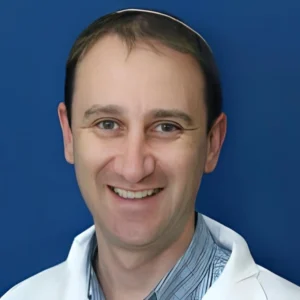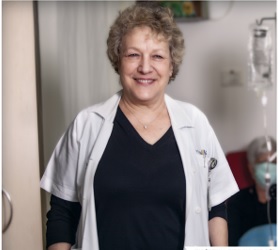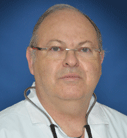Healthcare with Confidence
Small cell lung cancer (SCLC) is one of the most aggressive types of lung cancer.
Tumors in this form can double in size within weeks, which makes the disease highly dangerous. By the time most patients are diagnosed, the cancer has already progressed to advanced stages, where surgery is usually no longer an option.
Israeli oncology centers and highly skilled doctors are recognized worldwide for their ability to provide fast and accurate diagnosis, as well as advanced treatment strategies that combine chemotherapy, immunotherapy, radiation, and supportive care.
Stages of Small Cell Lung Cancer
Israeli oncologists classify SCLC into two main stages:
- Limited stage – when the tumor is confined to one lung and may involve the pleura, mediastinal lymph nodes, or supraclavicular area. This stage represents about 30% of cases.
- Extensive stage – when the cancer has spread beyond the chest or to distant organs. This is the more common scenario.
The stage determines the treatment approach and the prognosis.
Diagnosis of Small Cell Lung Cancer in Israel
Accurate diagnosis is crucial, since treatment protocols differ from other types of lung cancer. Israeli oncologists use modern, minimally invasive technologies to confirm SCLC and determine the exact stage.
Diagnostic tests may include:
- Complete physical examination and detailed medical history
- Chest X-ray
- CT scan or PET/CT of the chest and whole body
- Histopathological examination of sputum or biopsy material
- Lung biopsy via bronchoscopy, CT-guided needle aspiration (FNA), or video-assisted thoracoscopy (VATS)
- Mediastinoscopy to check lymph node involvement
- Brain MRI or bone scan (to detect metastases)
Whenever possible, Israeli specialists perform biopsies using minimally invasive techniques, reducing recovery time and discomfort for patients.
Treatment of Small Cell Lung Cancer in Israel
Treatment depends on stage, general health, and the presence of metastases. Because SCLC is highly aggressive, therapy is usually systemic and begins immediately after diagnosis.
1. Chemotherapy
- The standard regimen remains a combination of etoposide + cisplatin (EP) or etoposide + carboplatin (EC).
- In limited stage: chemotherapy is often combined with radiation.
- In extensive stage: chemotherapy is the first-line treatment, often combined with immunotherapy.
2. Radiation Therapy (Radiotherapy)
- Used together with chemotherapy for limited-stage SCLC.
- Can be applied to the chest or brain to prevent or treat metastases.
- Prophylactic cranial irradiation (PCI) is sometimes recommended, since SCLC often spreads to the brain.
3. Immunotherapy – the breakthrough in SCLC
Since 2018, checkpoint inhibitors have become a standard addition to chemotherapy:
- Atezolizumab (Tecentriq)
- Durvalumab (Imfinzi)
Both drugs, when added to chemotherapy, have shown to significantly prolong survival compared to chemotherapy alone.
Other immunotherapy drugs used in clinical settings include:
4. Second-line and targeted therapy
If the disease progresses, Israeli oncologists may use:
- Topotecan (standard 2nd line drug)
- Lurbinectedin (approved in the US and increasingly used in Israel in 2024–2025 as a second-line option with promising results)
- EGFR/ALK targeted drugs are generally not effective in classic SCLC, but molecular profiling is sometimes performed to exclude mixed types.
5. Surgery
Surgery is rarely used, only in very early stages (Stage I) followed by chemotherapy, which is extremely uncommon in SCLC.
Supportive and Innovative Therapies
- Clinical trials in Israel give access to next-generation immunotherapy, CAR-T cell approaches, and new combinations of drugs.
- Palliative care is integrated early, including management of pain, shortness of breath, and paraneoplastic syndromes.
- Rehabilitation and psychological support are an essential part of treatment.
Symptoms and Risk Factors
Risk factors:
- Smoking (active or past) – the strongest risk factor
- Passive smoking (inhalation of tobacco smoke)
- Radiation exposure
- Family history of lung cancer
- Air pollution and occupational hazards
Common symptoms at diagnosis:
- Persistent cough, sometimes with blood
- Shortness of breath
- Chest pain
- Swelling of the face or neck (due to compression of veins in the chest)
- Neurological symptoms if the brain is affected (headaches, personality changes, seizures)
- Bone pain if metastases spread to bones
Why Choose Treatment in Israel?
- Fast diagnosis – patients undergo all necessary tests within days.
- Multidisciplinary approach – oncologists, pulmonologists, radiologists, and surgeons collaborate.
- Access to the newest drugs and clinical trials.
- Patient-centered care with advanced supportive therapies and personalized treatment planning.
Israeli oncologists emphasize immediate initiation of therapy, which is critical in aggressive cancers such as SCLC. With modern chemotherapy combined with immunotherapy, patients in Israel today are achieving longer survival and improved quality of life compared to previous decades.






